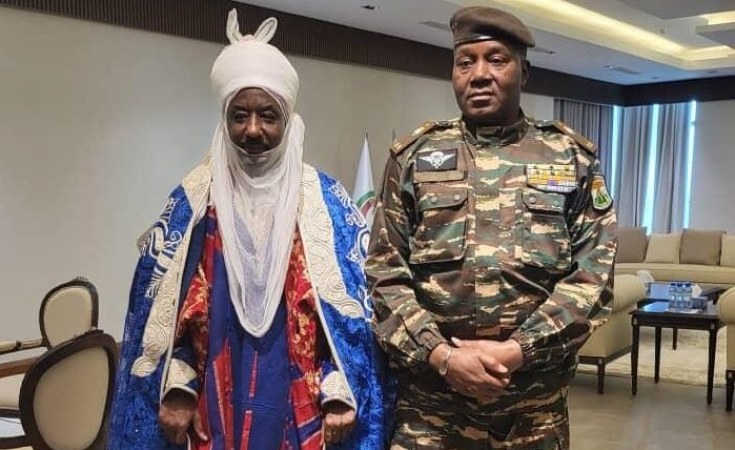ECOWAS leaders will meet Thursday in Abuja to review the next line of action after the one-week ultimatum given to the Niger coup plotters ended on Sunday.
Hours after the Nigerian Supreme Council for Islamic Affairs (NSCIA) declared its opposition to the use of sanctions and military deployment in Niger, some prominent Islamic scholars met with President Bola Tinubu to seek his permission to mediate the crisis.
The clerics led by the national leader of the Jama'a tul Izalatil Bid'ah wa Iqamatis Sunnah, Sheikh Bala Lau, advised the Nigerian leader against the use of force in Niger.
"We want to find a lasting solution. We want peace and harmony to reign not only in Nigeria but in the sub-Saharan region and globally. So, the whole Ulama advised Mr President, that we want peace and reconciliation," Mr Lau told journalists after the meeting with the Nigerian leader.
He said President Tinubu "accepted" their offer to intervene in the crisis.
Also speaking, the spiritual leader of the Ansarudeen Society of Nigeria, Sheikh Abdurrahaman Ahmad, said Mr Tinubu promised that "if we could also talk to the people on the other side, for them to be ready to give concessions, then ECOWAS, that he is chairman of is also ready."Other than that, the president deplored coup d'etat in the Sahel region, and, as a democrat himself, said he will do everything to ensure that there is democracy, justice, freedom and peace in the sub-region."
Mr Ahmad said the Nigerian leader "has given us an assignment to also mediate to ensure reconciliation between the warring factions in Niger Republic."
After the meeting, another Islamic scholar and former governor of Nigeria's central bank, Lamido Sanusi, also met with Mr Tinubu.
PREMIUM TIMES reported how Mr Sanusi, earlier on Wednesday, met with the leader of the Niger junta, General Abdourahamane Tchiani.
"I came to brief him on the details of my discussions with leaders of Niger," Mr Sanusi said after the meeting with the president.
"We'll continue to do our best to bring the two parties together to improve understanding."
Mr Sanusi said negotiations to avert a war in Niger should not be left to governments alone.
"All Nigerians, all Nigeriens need to be involved to find a solution that works for Africa, a solution that works for Niger that works for Nigeria and a solution that works for humanity," he said.
Mr Sanusi, the spiritual leader of the Tijaniya Islamic sect in Nigeria, said even though Nigerian officials were aware before he left for Niger, the trip was his initiative and he used his "personal contacts."
Islamic leaders in the limelight
The majority of the population in Niger are Muslims and have cultural and religious ties with Nigerian Muslims, particularly those in Northern Nigeria.
The Tijaniya sect that Mr Sanusi leads in Nigeria has millions of members across West Africa, including in Niger.
The influence of Nigerian Islamic leaders may have influenced the decision of ECOWAS, led by President Tinubu, to include the head of the NSCIA and Sultan of Sokoto, Muhammad Abubakar, in a three-person delegation to negotiate with the coup leaders in Niger.
However, that delegation, led by ex-Nigerian military ruler Abdulsalami Abubakar was not allowed to see the coup leader, General Tchiani, indicating the complexities in the relationships between the various strata of society in Niger and Nigeria.
Mr Tchiani had also refused to meet delegations from the US, AU and the UN.
When Mr Sanusi met Mr Tchiani on Wednesday, he was accompanied by the Emir of Damagaram in Zinder, in the Maradi region of Niger.
ECOWAS leaders will meet Thursday in Abuja to review the next line of action after the one-week ultimatum given to the Niger coup plotters ended on Sunday.
The regional bloc has already imposed sanctions on Niger, including asset freezes and the closure of land and air borders. It has also threatened the use of force if the putschists refuse to return President Mohamed Bazoum to power and if all diplomatic efforts fail. The various meetings and statements by the Nigerian Islamic clerics are to prevent the use of force.
Nigeria, Africa's largest economy and the largest military in West Africa, will be expected to provide a large chunk of soldiers should ECOWAS decide to use force in Niger.


